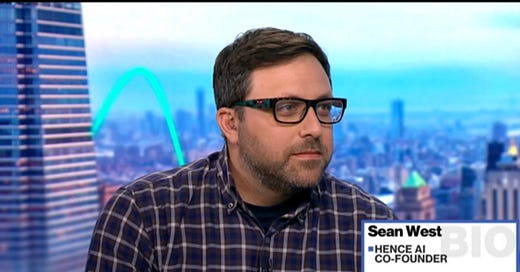GeoLegal Weekly #59: Wait - International law still matters sometimes?
International law is eroding. Yet institutions don't die.
For the the two or three people that wait by their inbox every Wednesday at 7AM Pacific time for Geolegal Notes, you’ll notice I’m a couple days late. Please accept my apologies but it’s been quite a week. As we approach the release of UNRULY on 25 March, the launch parties and media hits have been coming fast and furious. Special thanks to my friends at Pillsbury for hosting an incredible launch event for Unruly last night!
Before I dive into the core essay, I wanted to share two pieces of media with you. The first is a long form interview I did with Tom Rice of TravelPerk and Alex Herrity of Adidas. There is nothing better than being interviewed by incredibly smart people and I loved this conversation. Not only should you check it out but also check their new Substack,
, which is just awesome.Second, I had a lot of fun going on Bloomberg TV yesterday to chat about UNRULY and mouth off about tariffs and CEO preparedness. You can watch that here, around the ten minute mark.
Institutions Don’t Die…They Just Fade Away
In an unruly world, we often talk about how international institutions are weakening and how countries are increasingly prioritizing their own sovereignty over multilateral cooperation. This in turn creates greater uncertainty around global governance because there are some 200 independent actors defining their own rules rather than a handful of major international organizations trying to create guidelines for everyone.
But none of this means you are free to ignore these international institutions, especially if you're a former president of the Philippines widely accused of running death squads that carried out thousands of extrajudicial killings amounting to possible crimes against humanity.
About a week ago, former Philippine President Rodrigo Duterte was arrested in the Philippines and sent to The Hague at the request of the International Criminal Court (ICC) where he will face charges of crimes against humanity. The events leading to this dramatic development, including a rare instance of a country extraditing a former head of state to face international criminal charges and the political tensions in the Philippines that led to this, is a major news story with significant implications for Philippine politics and international justice. But it’s also a reminder that while international institutions like the ICC may struggle to assert themselves in an unruly world, they are not dead.
The UN, IMF, WTO, WHO, ICC, NATO, BRICS, UNDP, G20…the list of acronyms of international and multilateral organizations is long. Some are being actively undermined like NATO and the WHO, others seem to have lost the power they used to have as countries increasingly prefer bilateral relationships over multilateral ones.
The headlines around Trump’s tariffs on Canada and China are about the US president demanding concessions and saying the US would no longer accept what he deemed unfair trade practices. That’s a bilateral trade conflict; but both China and Canada, in addition to responding with their own rhetoric back at Trump, dutifully filed for consultations at the WTO accusing the US of violating trade rules. Would a WTO ruling against the US influence Trump’s tariff policies? Of course not (arguably it’d make him double down on tariffs). But the US actually engaged with the WTO complaint pushing back essentially saying that actually China and Canada were themselves the ones in violation of WTO rules. The key thing here is that even in Trump’s “America First” world, the US is still engaging in trade disputes through an international institution.
Once structures like the WTO or ICC exist, they may lose importance but they don’t disappear and as long as they are there, someone is likely to use them. So, if someone is using them you probably need to remain aware they could still be used against you.
As the destruction of USAID, the U.S. withdrawal from the WHO, and the general distaste in the White House for multilateral organizations demonstrate, international development, healthcare, and cooperation are unlikely to be driving forces in global dynamics, at least as far as America is concerned. But they still remain factors and many nations in the global community will both abide by the rules and expect them to be enforced.
The uncertainty generated by every country trying to make its own rules is already considerable, and it is further compounded by the unpredictability of when international norms will still apply. It’s like a city where drivers can seemingly ignore red lights without getting a ticket, except for some reason, there are a few red lights here and there that people do need to stop at, or else they’ll get sent straight to The Hague.
-SW and DB







